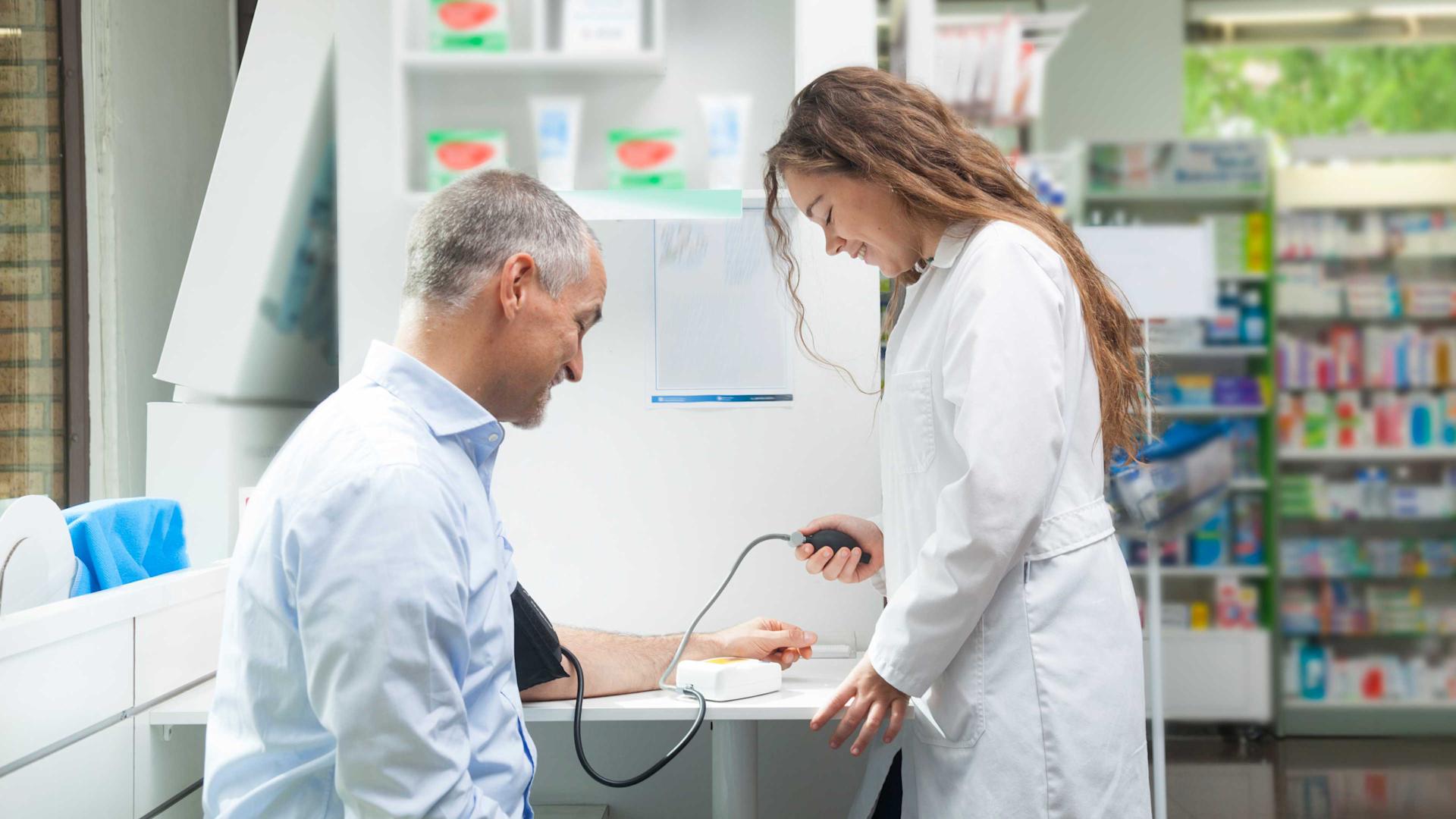
How to do more with your money
Four tips to help you grow your assets steadily and reliably.
navigation

Medbase
Not every minor ailment or concern needs a doctor – in many cases, a pharmacist can help. This relieves the burden on doctors’ surgeries and A&E departments. Where pharmacies can help.
We’ve all heard that you can get vaccinated against flu and ticks at the pharmacy. But did you know that pharmacies also offer vaccinations against hepatitis A and B, chickenpox, diphtheria, tetanus, whooping cough and other diseases?
“The range is growing from year to year, but varies from canton to canton,” explains Mara Pasche, manager of the Medbase pharmacy in Lancy Pont-Rouge. Despite regional differences, pharmacies throughout the country must fulfil the same quality requirements.
“Only qualified pharmacists who have completed special training are authorised to provide the relevant services – and only for people aged 16 and over.” During the training, the injection techniques are practised and the typical risks for each patient group are discussed.
Experiencing pain while urinating on a Friday afternoon and can’t get an appointment with your GP before the weekend or don’t want to spend several hours in A&E? A pharmacist can help you.
“If the discussion with the patient reveals that it is an uncomplicated bladder infection, the pharmacist can give them an antibiotic without a prescription,” explains Mara Pasche.
Here too, only pharmacists with additional training in the field of anamnesis are authorised to do so. Pharmacists can also dispense medication for shingles, migraines and erectile dysfunction, which is normally only available on prescription.
“We also have a duty of care towards the patient,” says the pharmacist. “This means that we contact them again within two to five days to assess the effectiveness of the treatment and optimise care.”
An earache, a wound that needs to be cleaned or checked, a check for lice? In such cases, you do not necessarily have to go to the doctor. “The pharmacist should not replace the doctor, but complement them.
Of course, we refer the patient to a doctor if the case goes beyond our expertise,” says Pasche. Pharmacists can also help you find a doctor.
“I often turn to doctors I work with to get an appointment for my customers quickly. A suitable time slot is often found during the course of the day,” explains Mara Pasche.
Many people no longer have a GP. At the pharmacy, we can offer them a low-cost check-up.
Measurement of cholesterol levels, blood sugar and blood pressure, heart and diabetes tests... You can also have this done in pharmacies.
“Many people no longer have a GP or haven’t been to a check-up for many years. At the pharmacy, we can offer them a low-cost check-up and refer them to a doctor if necessary.”
Allergy tests, colorectal cancer screenings and dermatological consultations are some of the little-known services offered by pharmacies.
“In the latter case, for example, we take photos of the suspicious areas and send them to a dermatologist together with the recorded information. We usually receive a diagnosis and, if necessary, a treatment recommendation within a day.”
Whether you’re interested in science, sustainability, health or saving money – our team of experts is on hand with practical tips and tricks.